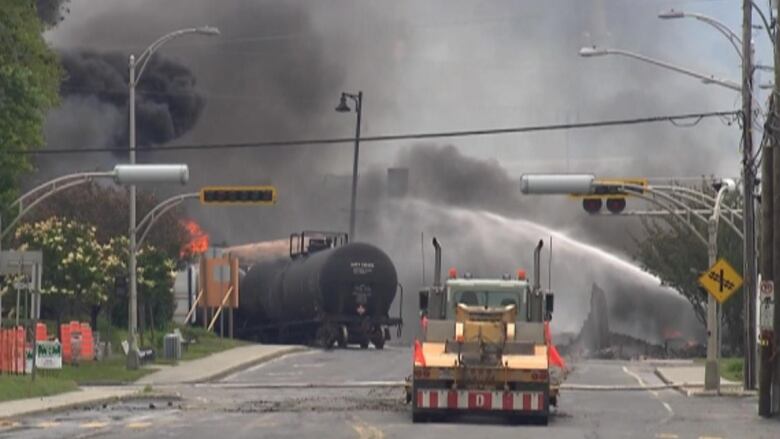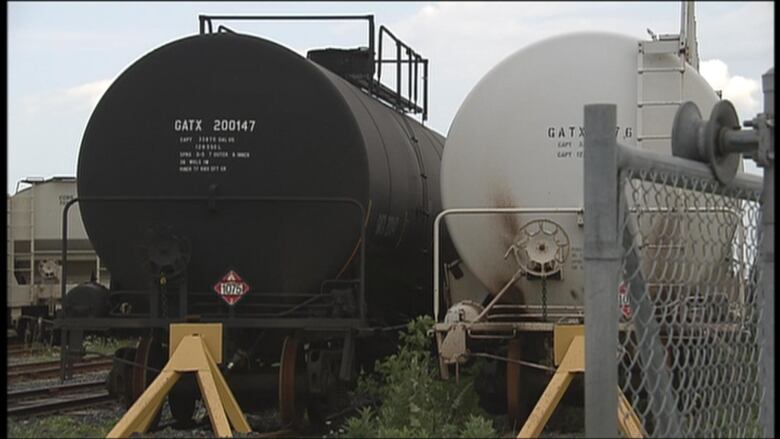Tighter regulations coming for freight train companies
Lac-Mgantic disaster prompts demand for transparency about cargo hazards

Ottawa is set to move ahead with plans to give municipalities more information about potentially dangerous traintraffic in their communities.
CBC News and its French-language service Radio-Canada have learned that Ottawa is currently working on new regulations for train companiesfollowing this summer's deadly train crash in Lac-Mgantic, Que.
Ottawa pledged to improve regulations in the last throne speech, and rail safety was at the top of the list when federal and provincial transport ministers met in Winnipeg in September.
More transparency
The new guidelines are aimed at making freight companies more open and transparent about the materials they are transporting through towns and municipalities.

Under the new rules, all rail companies would have to provide annual reports to municipalities along their routes,outlining the nature and quantity of dangerous materials they have transported throughout the year.
The major companies Canadian National Railwayand Canadian Pacific Railwaywould also have to give quarterly updates.
Small rail companies are exempt from quarterly reports, but would have to inform municipal officials any time they make major changes to their cargo.
New rules are a good start
Municipal officials say they are happy with new rail safety regulations that Ottawa is set to introduce.
The head of Quebec's Federation of Municipalities, Bernard Gnreux, saidthe new rules to ensure transparency are an important step and,had they been in place last July,could have sped up the relief effort in Lac-Mgantic.
Two months after the crashthat left 47 people dead, the Transportation Safety Board of Canada announced the disaster was worse than initially thought, because the crude oil in the tankerswas misidentified as a less volatile substance.
It took several hoursbefore firefighters could start to intervene with the right products. Knowing what was on that train would have allowed firefighters to be better prepared and to respond faster, Gnreux said.
But Gnreux addedthat even if officials in Lac-Mgantic knew that the Montreal, Maine and Atlantic Railway (MM&A) train was carrying 72 tankers full of crude oil, the accident still would not have been prevented.
He saidonce officials know whatmaterials the trains are transporting, the municipalities will then need specialized equipment and trained personnel.
Once we know, we have the right to act. The right to act means additional human resources and equipment, Gnreux said.
All of this has a cost, so who will pay for this?
Gnreux saidhe would also like to see the new rules extendedto cover all modes of transportation for dangerous materials, including trucks, ships and oil and gas pipelines.












_(720p).jpg)


 OFFICIAL HD MUSIC VIDEO.jpg)
.jpg)



























































































